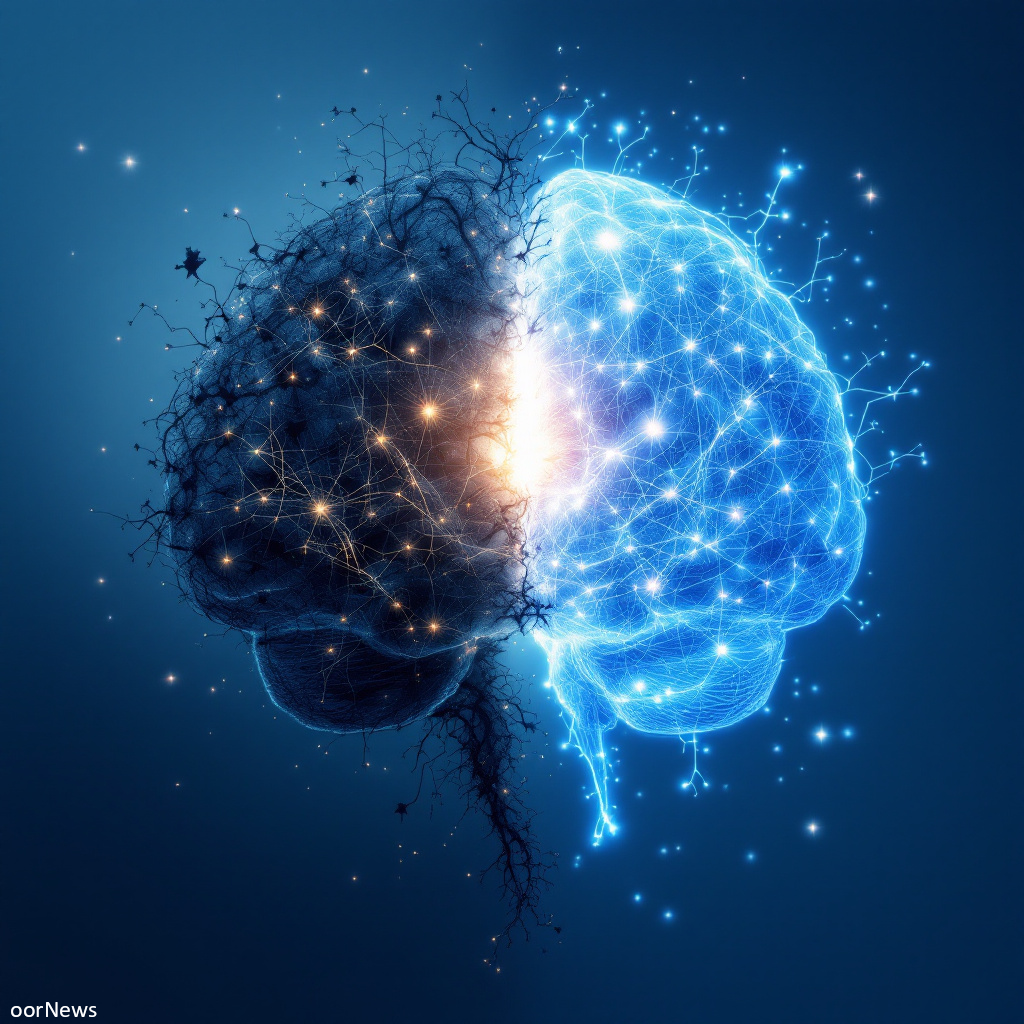Your cart is currently empty!

Live Brain Cell Study Shaws Toxic Protein Destroys Synaptic Connections

Scientists at e University o Edinburgh hae, for e first time, shawn foo a dangerous form o amyloid beta—a protein linked tae Alzheimer’s—can stick tae an damage the connections (synapses) atween live brain cells. In a brakthrou study, researchers eesed wee slices o leevin human brain tissue collected durin routine operations an exposed em tae different forms o amyloid beta. Fyle the normal form garred e tissue tae regrowe itsel, e toxic version makked it sae’s aat it cuidna mend its synapses.
E study revealed aat even slicht chynges in e naitural levels o amyloid beta—fither an increase or a decrease—cuid disrupt brain cell function. Researchers believe aat maintainin a verra strict balance o iss protein is crucial for healthy brain function an aat iss insichts cwid guide e development o drugs for tae prevent synaptic loss.
Additional tests shawed aat tissue fae the temporal lobe, an area affected early in Alzheimer’s, released heicher levels o the protein tau. Iss micht explain e region’s pairticular vulnerability in e disease’s early stages, wi some samples aaready shawin early signs o Alzheimer’s sic as amyloid plaques an tau tangles.
“Iss important wirk by Dr Durrant’s team brings a new tool tae scientists’ toolbox for tae better unnerstaund Alzheimer’s disease an foo tae treat it,” e press release stated. Employin a pioneerin method aat hauds live human brain tissue alive in e lab for a puckle o wikks, e research merks a significant advance by allouin scientists tae study early Alzheimer’s in rael human cells raither than animal models.
E study, pairt o the Dyson RAD Dementia Research Acceleration Project, received support fae the Race Against Dementia charity an a £1 million gift fae the James Dyson Foundation. Iss fundin helped cover e costs for scientific staff, research nurses, an lab equipment.
Wi een in three fowk born e day likely tae face dementia—an fowk developin e disease ilka three seconds—iss innovative research offers a promisin stap tae finnin treatments for tae combat e devastatin impacts o dementia.
Leave a Reply